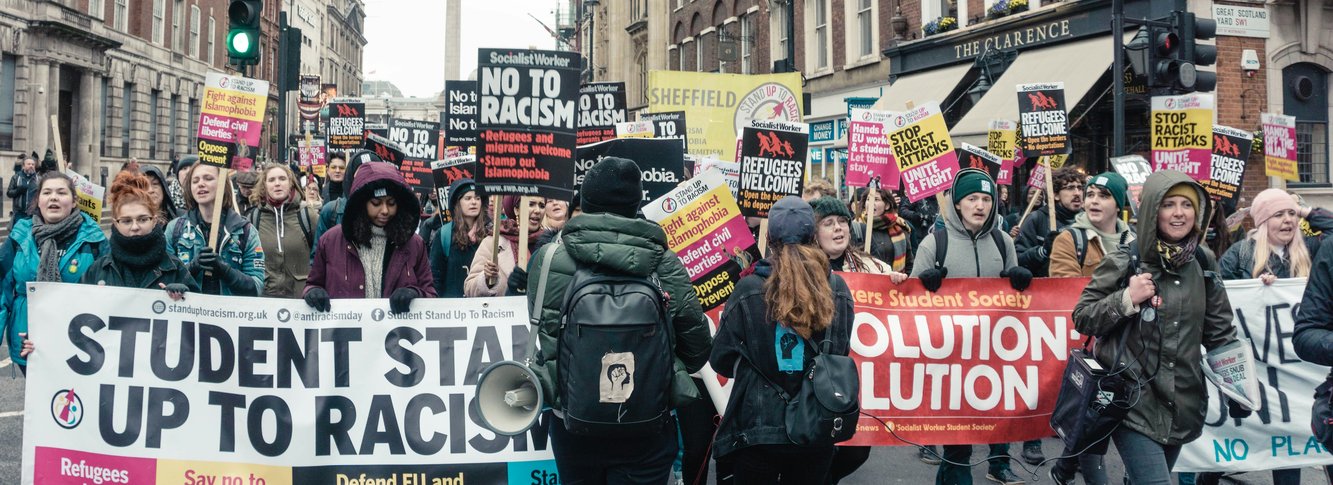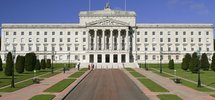| 7 mins read
As the academic year begins, the topic of protests at universities is likely to feature in the news again. Over the previous academic year, students across the world joined together to protest the ties between their universities and those responsible for the killing of tens of thousands of civilians in Gaza. Encampments began in over 145 universities, with focussed calls for ethical divestment of funds. Some universities, such as Trinity College Dublin, responded swiftly with new divestment policies. Some, by contrast, sought court orders to remove student protestors. Others called the police, either in response to meeting protestors (as in Newcastle) or before a formal meeting actually occurred (as in Oxford).
There seems to be an escalation in universities calling the police against their own student protestors. With this in mind, we argue that universities should adopt a presumption against calling the police in these contexts. By this, we mean that universities should implement a policy that calling the police is not an acceptable way to manage mere disruption by protestors (i.e. where this disruption is non-violent, without a substantiated allegation of more than minor harm to an individual or to university property). We suggest that this presumption has at least three main justifications.
Free Expression and Assembly
First, much of the law that provides the police with powers against student protestors is unlikely to be compatible with the UK’s legal obligations to protect the rights to free expression and assembly, set out in articles 10 and 11 of the European Convention on Human Rights. To curtail these rights, the government must pursue a limited set of public interests and ensure that any interference is no more than strictly necessary and proportionate.
Two recent pieces of UK legislation—the Police, Crime, Sentencing and Courts Act 2022 and the Public Order Act 2023—may be incompatible with the ECHR. The 2022 Act gives the police new powers to limit protest, such as where the ‘noise’ of participants may result in ‘serious disruption to the activities of an organisation carried on in the vicinity of the procession’. The Joint Committee on Human Rights has commented that the trigger for imposing conditions on public processions represents an unnecessary restriction on protest and lacks ‘convincing safeguards against arbitrary or discriminatory use of these powers’. The 2023 Act, meanwhile, creates a range of new offences targeted at protests, such as ‘being equipped for lock on’ and obstruction of major transport works, as well as ‘Serious Disruption Prevention Orders’ able to prohibit future conduct of protestors. Again, the 2023 Act has an uncertain status when considered against the UK’s legal obligations. The UN High Commissioner for Human Rights referred to the Act as ‘deeply troubling’ and, again, as imposing restrictions neither necessary nor proportionate.
Here, universities must be especially careful. As public authorities, universities have legal duties to protect students’ exercise of free speech and assembly (e.g. Birmingham University v Persons Unknown [2024] EWHC 1529 at [34]). Given the uncertainty surrounding the lawfulness of these police powers and the corresponding obligations to protect protests, universities have a strong reason to use a high degree of caution when deciding whether to call the police.
Police as Aggravators
A second justification for the presumption is the police’s tendency to escalate situations, rather than diffuse them. The police have been seen to use tactics of physical force and mass arrests against students in recent times. In the US, for instance, the conduct of police officers led to the UN High Commissioner for Human Rights expressing concern about the disproportionate impact on protestors. Alongside protecting free expression and assembly, universities also have duties of care towards their students. Universities frequently claim to have a legitimate role in assisting students’ wellbeing (e.g. Oxford University’s online material on student wellbeing and support). Yet it seems difficult to reconcile that aspect of universities’ obligations with the use of police officers, who often make situations worse and put students at greater risk.
Anti-Discrimination
A third justification concerns discrimination, again addressing the relationship between universities, their students and the police. It is widely established that policing tends to operate in discriminatory ways, with well-known examples including the use of ‘stop and search’ powers. Universities tend to make commitments to equality and anti-discrimination. With those policies and initiatives in mind, it seems incongruous when universities resort to the coercive powers of policing. For many students, the presence of the police increases risk of discrimination against them—on a university’s own premises and, though not expressly invited for that purpose, at a university’s request.
Going Forward
With these three justifications sketched, the adoption of the presumption would not only signal a serious commitment to the importance of the rights of free expression and assembly, but it would also better protect the students who exercise them.
In this article, our focus has been on peaceful protests. We have not considered more complex cases, e.g. where allegations of violence are used to justify the intervention of the police, as they were in an incident at Oxford University earlier this year. It may be, for instance, that universities are hesitant to invoke a presumption in contexts where they would argue that they have competing duties, such as to protect property or prevent staff from coming to harm. For now, we simply observe that university officials should scrutinise such allegations with care and, even if they have a basis in fact, officials should remember the dangers that come with involving the police. With the next academic year in sight, such a commitment would represent an important step in protecting the freedom to protest and the students who wish to use it.








